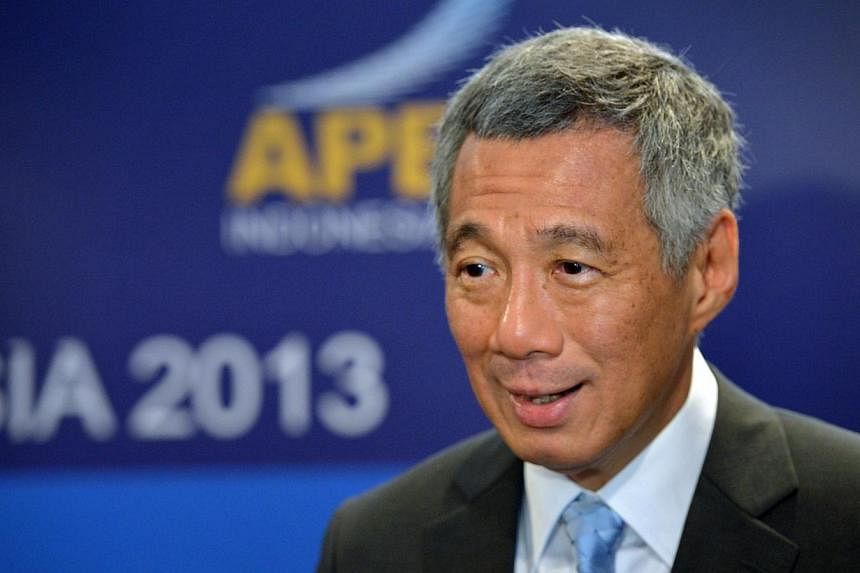THE APEC grouping has lived up to expectations since its launch in 1989 and stands poised to offer more in the next 25 years, said Singapore Prime Minister Lee Hsien Loong, as he outlined how the country has benefited as an Apec member.
He cited how the Apec grouping accounted for almost 75 per cent of Singapore's total trade last year.
Also, 63 per cent of Singapore's outward investment was into the 21 Apec economies while Apec economies' investment made up over a quarter of the total investments into Singapore in 2012.
"Singapore depends heavily on our trade, investment and political links with regional economies.
"Our membership in Apec is essential to our prosperity and well-being," said PM Lee in an interview published on Wednesday ahead of the upcoming Apec summit in Beijing this weekend that he will attend.
But Singapore has also contributed to Apec's success, he added, as he pointed out how it has hosted the Apec secretariat for more than 20 years.
He also recalled how Singapore, as host of the Apec Summit in 2009 amid an unprecedented global recession, had "developed initiatives that we hoped would be valuable and relevant to Apec not just in 2009, but over several years".
"We worked closely with other Apec economies to ensure that initiatives would be meaningful and inclusive for everyone," he added.
In the interview with the Apec secretariat, Mr Lee also voiced support for a proposed Pacific Rim free trade zone that China is pushing for amid talk of American opposition.
He said the Free Trade Area for Asia Pacific (FTAAP) is "a crucial step" that the 21-member Apec grouping must take as multiple regional economic architectures are evolving.
These include the Trans-Pacific Partnership (TPP) which is led by the United States but excluding China. Beijing in turn is leading the Regional Comprehensive Economic Partnership that excludes Washington.
Citing other trade initiatives like the China-Japan-Korea FTA, PM Lee said: "The FTAAP is necessary to anchor the Apec economies in one broad architecture, based on the multiple pathways of these other FTAs."
The FTAAP is expected to be included in a joint communique that Apec leaders including US President Barack Obama and Russian President Vladimir Putin will release next Tuesday after their closed-door retreats.
The other key tangibles that the Apec summit, which kicked off on Wednesday with related meetings, is expected to produce include a connectivity blueprint between Apec economies.
Another initiative is an anti-graft network that China is pushing for to aid its efforts in nabbing corrupt fugitives.

